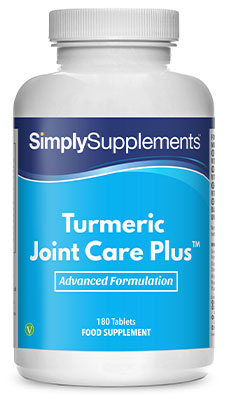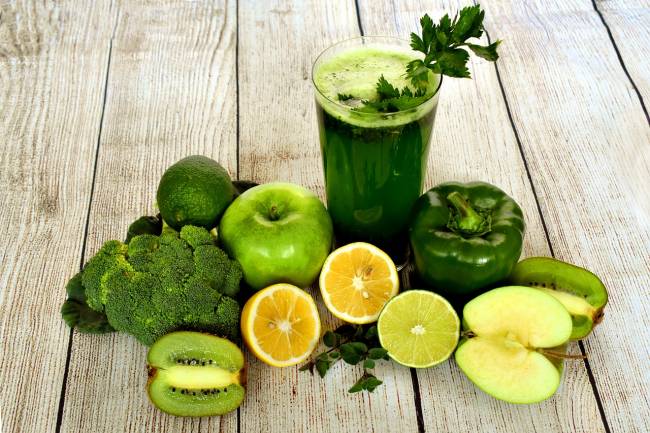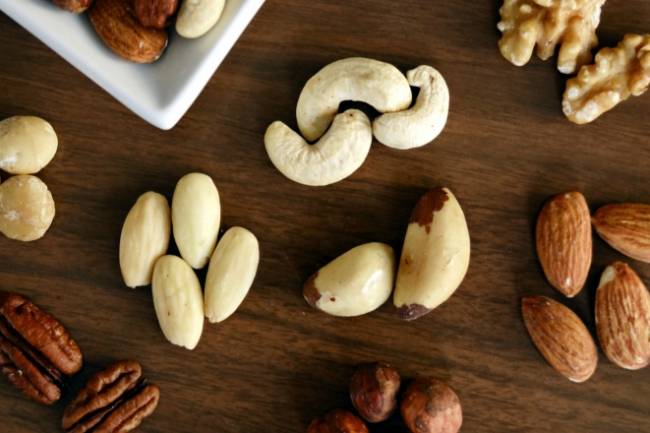Benefits of Turmeric for Gout

In recent years a growing number of people have started to take turmeric supplements. Look around the internet and you’ll find no end to the purported health benefits attributed to this yellow spice. But is there any evidence to suggest that turmeric can really help cases of gout?
In this article we’ll examine the latest research in order to answer that exact question.
What Causes Gout?
The condition we know as gout is caused by crystals of uric acid which congregate in and around the joints. These crystals can reduce the range of movement and cause severe pain.
Just as importantly, however, is how the body responds to the presence of these crystals. Most commonly the body launches an immune response with the intention of protecting itself from harm. The end result of this reaction is typically severe swelling and inflammation, further adding to the discomfort.
This means that when it comes to preventing gout we have two different processes acting simultaneously. Firstly we have the crystals themselves, and secondly we have the body’s inflammatory response.
The question is whether turmeric (or its active ingredient curcumin) actually has any impact on these two elements...
How Does Joint Inflammation Occur?
The human immune system is a fiercely complex system, involving numerous moving parts. One of the most basic aspects is a group of proteins known as “cytokines”. These cytokines are produced by white blood cells and, essentially, represent a signal to the immune system to launch an attack. Substances that either block the production of cytokines (or prevent them from passing on their message) can therefore positively impact cases of inflammation.
Turmeric is perhaps best known in the health community for its potent anti-inflammatory properties. Here the evidence is quite convincing, with scientific studies demonstrating that turmeric positively influences many inflammatory conditions including psoriasis, IBS and some eye diseases.
There is also evidence to suggest that this same property has the potential to benefit gout. For example, one scientific investigation found that turmeric “prevented local activation of NFκB and the subsequent expression of genes mediating joint inflammation”. NFκB is a type of cytokine that play a role in inflammation. Fortunately turmeric seems to help, reducing cases of swelling and soreness in afflicted joints.
Other studies have reported that turmeric inhibits “enzymes involved in inflammation” and that “laboratory studies have identified a number of different molecules involved in inflammation that are inhibited by curcumin”.
All told, the research paints an intriguing picture. Unlike some natural remedies, which act on a single molecule or pathway, scientists have isolated a whole host of different signaling molecules which can be positively influenced by turmeric.
The evidence therefore tells us that turmeric does indeed have a number of anti-inflammatory properties, and furthermore that these include joint inflammation. As a result, it is also likely to be just as beneficial for gout as for other types of joint complaint.
Where Do Uric Acid Crystals Come From?
Uric acid is a waste material created when the human body processes chemical compounds known as purines. Purines are present in a huge range of different foods and beverages, though certain foodstuffs contain higher-than-normal concentrations.
For most people these purines, which we consume daily, cause no discernable problem. The uric acid produced travels around your bloodstream, before being filtered out by the kidneys and excreted from the body.
Sadly, when the kidney behaves sub-optimally, uric acid crystals can start to build up in the blood, for some people creating the symptoms we know as gout.
Turmeric & the Kidneys
Healthy, efficient kidneys are a crucial ingredient in the treatment of gout, acting as a “filter” for uric acid crystals. Here there has been far less research carried out, but a handful of studies have suggested that curcumin may also exert a positive impact here too.
Gout can be an issue for those with diabetes, as the condition is known to cause kidney damage in many patients. The excessive level of glucose found in the blood of un-medicated diabetics is thought to significantly increase free radical production. These free radicals, in turn, damage cells on their journey around the body. As the kidneys filter impurities from your blood, they are placed at particular risk of harm from such blood-borne dangers.
One notable study measured the impact of curcumin on free radical levels in the blood. The results showed clear evidence that curcumin can act like an antioxidant, helping to neutralise the risk of free radicals. As a result you may find that taking a turmeric supplements helps your kidneys to function effectively, and in doing so uric acid may remain at a healthy level.
The Effect of Turmeric on Gout
By now we’ve examined strong evidence that turmeric is likely to be beneficial for the joint inflammation associated with gout. We’ve also seen at least some modest evidence that it may also benefit the kidneys, especially in high risk groups like diabetics. But let’s take a moment to look at a more holistic approach to the science: have these same effects been shown in actual gout sufferers?
In 2013 two scientists based in Belgium published the results of an ongoing experiment involving turmeric and gout. Out of the 19 patients involved, 17 of them reported “dramatic” improvements with their condition. Interestingly, these patients started to report improvements in as little as 24-48 hours after treatment commenced.
Perhaps even more reassuringly, after the study a number of patients opted to continue with this treatment over the long term. Of these individuals, the majority reported that they were “satisfied” with the impact after a full 6 months of ongoing treatment.
More interesting results come from a study on Non-Alcoholic Fatty Liver Disease. Seeking to assess the effectiveness of turmeric on liver disease, 87 subjects were provided either with turmeric capsules or an identical-looking placebo. Blood tests were carried out during the study, under the expectation that harmful cholesterol levels would fall. This was indeed proven correct.
From the perspective of this article, however, the most interesting result comes from other blood markers tracked during the study. The experts found that “supplementation with curcumin was associated with a reduction in serum levels of… uric acid” - the exact substance causing gout in the first place.
Lastly it is worth highlighting one further study that looked at the effects of turmeric on arthritis in general. Rather than a single study it was a wide-ranging “meta-analysis” which pooled the results of numerous previous trials. In doing so the experts were able to make a more credible assessment of the impact that the spice had.
The data they gathered showed improvements in arthritic pain and range of movement, with some studies even demonstrating that turmeric offered a similar benefit to over-the-counter pain medications. They concluded that the trials “provide scientific evidence that supports the efficacy of turmeric extract in the treatment of arthritis”.
Once again, therefore, the picture becomes clearer. While more studies will be needed before scientists agree unanimously on turmeric’s impact, the current evidence suggests that it can decrease uric acid levels in the body, reduce joint inflammation and may even help to protect the kidneys from harmful free radicals. All told, this is quite an impressive feat for a yellow spice!
How to Take Turmeric for Gout
Turmeric may have gained in popularity over the years, but in truth the scientific literature is still quite light on what the optimal dose would be. However, we can examine what results there are, to try and give some direction.
Firstly it is important to draw a distinction here between turmeric (the spice) and curcumin (the active ingredient). Turmeric that is low in curcumin may not prove to be as beneficial as a specialist curcumin extract.
A further complication is that turmeric is filtered rapidly from the body, with levels starting to drop within just an hour or two of consumption. This is why many turmeric supplements include a second ingredient known as piperine. Piperine is extracted from black pepper, and can significantly enhance the ease with which curcumin is absorbed by the gut.
Broadly speaking, therefore, taking turmeric powder from your local supermarket is likely to be far less effective than a high-curcumin supplement that incorporates piperine.
In terms of volume, most effective studies have used between 100 and 1000mg of curcumin per day, so this is likely a good starting point for gout sufferers.
Most studies have found a direct relationship between the volume taken and the results seen; generally speaking a higher dose seems to lead to more rapid results or a greater impact. Starting with a lower dose, but being willing to increase it if you don’t feel the full benefit, is therefore likely to be a wise course of action. But how high is too high?
A number of studies over the years have aimed to assess the “safe” upper limit for turmeric. While the odd individual suffers from some mild nausea or an upset stomach, even high doses tend to be almost side-effect free.
One of the boldest experiments to date gave subjects an incredible 8 whole grams of turmeric per day for a period of three months and “found no toxicity”. Other studies have shown similar results, meaning that increasing your intake is unlikely to lead any serious health risks.
Remember that it is advisable to discuss any new treatments with your doctor. This is especially important if you’re taking any ongoing medications, in order to avoid the risk of drug interactions.
What Else Can I Do to Get Rid of Gout?
The evidence to support the use of turmeric for gout is quite convincing. However, that certainly doesn’t mean you should ignore other possible solutions to your problem, especially if it is causing you considerable pain. So what other options are available?
Dietary Changes
The purines that are known to cause gout come from two different sources. Firstly, they are produced naturally within the body, and there is little that can be done to impact their output. The other source, however, comes from our diet.
Some foods that have a higher-than-average concentration of purines include oily fish like mackerel and anchovies, liver, and many beans.
Alcohol in general can also have a negative impact on gout as it slows down the rate of uric acid removal by the kidneys. Beer, however, is considered to be particularly bad. This is because it not only affects the kidneys but is also high in purines when compared to other beverages.
It is important to remember that dehydration can cause the kidneys to work less efficiently, subsequently increasing the chances of a uric acid crystal build in the blood. It should therefore be no surprise that numerous gout sufferers have reported benefits from increasing their hydration levels. Increasing the volume of fresh water you consume each day is a simple and, many people find, effective treatment for the condition.
Lifestyle Changes
A fascinating study in 2016 gathered together the medical records of over 1,000 US citizens suffering from gout. They examined a range of different lifestyle factors to identify those which are associated with an outbreak.
The results showed that individuals with high blood pressure or diabetes were far more likely than the general population to suffer from gout. A higher body fat level was also closely linked to cases of gout, though whether the excess weight is the causal factor or whether this is an indication of a poor diet rich in purines has not yet been examined.
In general then adopting a healthy lifestyle also has the potential to benefit your gout - losing weight and drinking less alcohol are two great examples. Adopting a heart-healthy diet and considering supplementation or pharmaceuticals for blood pressure may also be beneficial.
Vitamin C Supplements
Between 1986 and 2006 a total of 46,994 Americans recorded their diet and the appearance of any medical conditions. This vast set of data has provided rich pickings for scientists in recent years. Fortunately one analysis looked at gout, and examined the dietary elements that seemed to have an impact.
The most obvious trend identified was that higher vitamin C intakes generally corresponded with lower gout levels. It was found that men consuming less than 250mg of vitamin C per day were almost 50% more likely to suffer from gout than men that supplemented their diet with 1500mg per day or more. They concluded that “supplemental vitamin C intake may be beneficial in the prevention of gout”.
The research is considered to be so strong that at the time of writing even the NHS themselves recommend it for gout. But how is vitamin C meant to help such conditions?
The answer comes from another study of gout patients. 184 individuals were given 500mg of vitamin C per day for a period of two months. Blood tests were taken throughout and the results compared with cases of gout. The previous results held true, and the volunteers experienced a significant improvement in their condition.
The blood test results, however, went a step further by showing how this actually occurred. It seems that vitamin C actually increases the filtration rate of the kidneys, causing uric acid levels in the blood to decline. Essentially, vitamin C encourages your kidneys to operate more efficiently, therefore striking straight at the heart of the problem.
Medications
A number of different medications may be prescribed by your doctor for the treatment of gout. Possibly the most easily-accessible are non-steroidal anti-inflammatories, of which ibuprofen is the best known. As their name suggests, even these common, low-cost treatments can reduce (or prevent) inflammation in the joints.
Alternatively a range of pharmaceuticals termed “urate lowering therapies” may be recommended by your doctor. As the name suggests, these reduce the formation of uric acid crystals. Examples of common ULTs include allopurinol, febuxostat and pegloticase though there is an ever growing list of options available.
Conclusion
Gout may be painful, and a flare-up can have major impacts on your quality of life. Fortunately, we know more than ever before about the causes of gout, and therefore the potential treatments.
The science certainly tells us that turmeric (or curcumin) may be beneficial for gout, but also that taking it alongside vitamin C may produce an even better result. Be sure to speak to your doctor about your condition, as they will be able to advise you on supplement dosages, as well as helping you to create beneficial lifestyle choices for the future.
Sources:
https://www.nhs.uk/conditions/gout/
https://bmcmusculoskeletdisord.biomedcentral.com/articles/10.1186/s12891-017-1465-9
https://www.liebertpub.com/doi/abs/10.1089/107555303321223035
https://www.sciencedirect.com/science/article/pii/S1357272508002550
https://bmccomplementalternmed.biomedcentral.com/articles/10.1186/s12906-016-1067-3
https://pdfs.semanticscholar.org/f203/2c00d63a94824cafb7a368f98b07c433d806.pdf
https://www.ingentaconnect.com/content/wk/fjc/2016/00000068/00000003/art00006
https://www.liebertpub.com/doi/abs/10.1089/jmf.2016.3705
https://onlinelibrary.wiley.com/doi/full/10.1002/art.22180
https://onlinelibrary.wiley.com/doi/abs/10.1111/j.1440-1681.2006.04468.x
https://mospace.umsystem.edu/xmlui/handle/10355/10212
https://onlinelibrary.wiley.com/doi/full/10.1002/art.21105
https://jamanetwork.com/journals/jamainternalmedicine/fullarticle/414828

 Richard
Richard 

























